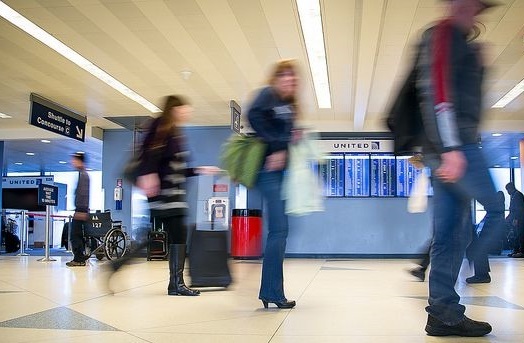Delta Air Lines and United Airlines recently announced that they will start rewarding passengers based on dollars spent rather than miles flown -- a move that experts have described as bad news for most travelers. But strangely enough, frequent fliers and industry authorities aren't always so quick to denounce price-based earning structures.
Starting in January 2015 for Delta and March 2015 for United, both basic SkyMiles and MileagePlus members will earn five miles per dollar spent. To put this into context, a Delta flight from New York City out of John F. Kennedy International Airport (JFK) into Los Angeles International Airport (LAX) that costs $500 currently earns basic SkyMiles members 4,950 frequent flier miles. Under the new system, the same trip at the same ticket price would only earn members 2,500 miles -- nearly 50 percent less than under the current system.
While Delta and United face harsh criticism for their 2015 updates to the SkyMiles and MileagePlus programs, JetBlue and Southwest -- which have always rewarded loyalty members based on how much they spend -- earn continuous praise from travelers. JetBlue TrueBlue took the No. 1 spot on the U.S. News Best Airline Rewards Programs ranking, while Southwest Rapid Rewards claimed second place. But loyal Southwest and JetBlue customers don't earn much more than that; the Rapid Rewards and TrueBlue programs award members six points per dollar spent. So why are Delta and United receiving so much flack for adopting the same earning system used by competitors?
Hack My Trip founder and U.S. News blogger Scott Mackenzie says it's because the business models are fundamentally different. Low-cost carriers "have more price-sensitive customers who prefer a regular discount over aspirational redemptions," Mackenzie wrote. Delta and United, on the other hand, place a heavy emphasis on elite membership, which comes with perks like priority boarding and free checked bags. However, because elite status is now determined not only by the distance you fly, but also by the amount of money you spend, it is now much more expensive to obtain.
"Delta, no doubt, is licking its chops at all the extra money you're about to fork over in exchange for the possibility that you'll be treated with just a little dignity on its flights," Christopher Elliott, a journalist and consumer advocate, recently mused on his blog.
And here's the kicker: While JetBlue and Southwest award everyone the same number of points per dollar spent no matter their status, Delta and United will reward elite members with earnings bonuses. Once the changes take effect, basic members will earn five miles per dollar spent while the highest-tier Diamond Medallion SkyMiles members and Premier 1K MileagePlus members will earn a whopping 11 miles per dollar spent. So on that same New York City to Los Angeles flight, top-tier Delta SkyMiles members would earn 3,000 miles more than basic members.
"These changes are designed to more directly recognize the value of our members when they fly United," Thomas F. O'Toole, United's senior vice president of marketing and loyalty and president of MileagePlus, told The Washington Post.
For those still unsure why Delta and United are feeling the heat from their program changes, Mackenzie noted, "[I]t is clear from current trends that loyalty programs of the future will reward only those customers who spend the most money with a preferred carrier and business travelers whose trips are fully reimbursable by employers."
While the SkyMiles and MileagePlus earning potentials will drop, the cost in miles of a reward flight will remain relatively the same, meaning program members will need to spend more in order to earn a free trip more quickly. This begs the question: Will these two programs still be worth investing in come 2015? For the budget-minded, probably not.
Does that mean travelers should steer clear of frequent flier programs altogether? Elliott seems to think so. "Maybe, just maybe, more customers will make a rational decision about their next flight itinerary, not one distorted by a pathological obsession with miles, but based on ticket price and convenience," he wrote in his blog.
Still, frequent flier programs can be beneficial -- as long as membership is approached with the same rationality Elliott encourages in ticket-buying. While it may be harder to earn a free flight through the SkyMiles and MileagePlus programs in 2015, you will have the ability to use your rewards for upgrades (a perk for anyone planning a long-haul flight), to pay for checked luggage or to offset the total ticket cost.
Determining what you want to get out of airline loyalty is the key to making the most of your membership. Before joining a program, you should take into account how often you fly, where you go, how you book and the airline you fly most often and select a program that rewards you based on your current travel habits. Also, be sure to read the fine print. Click here for more tips on choosing the right program for you, or check out U.S. News & World Report's Best Airline Rewards Program rankings for in-depth program information.
